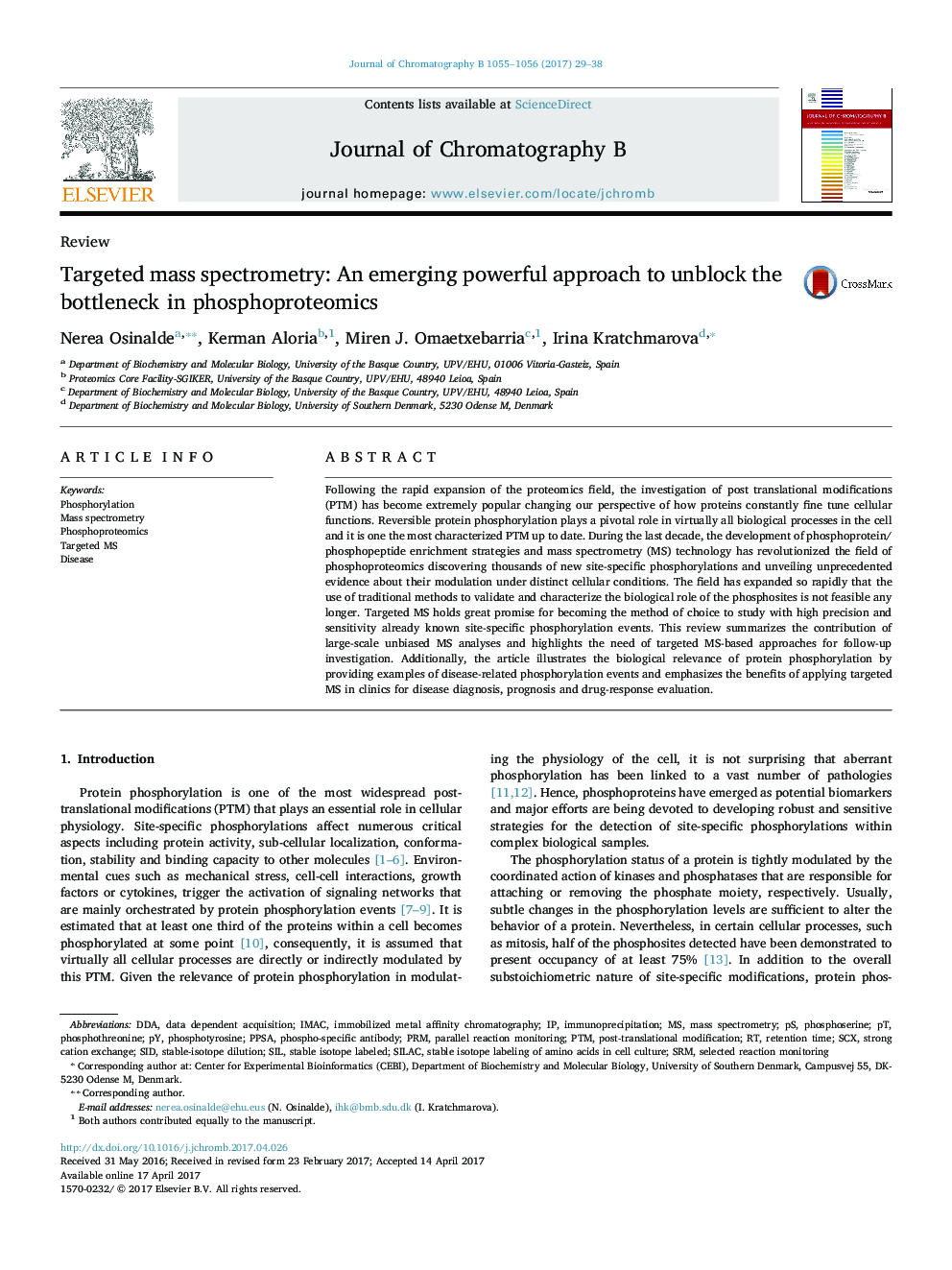| Article ID | Journal | Published Year | Pages | File Type |
|---|---|---|---|---|
| 5136319 | Journal of Chromatography B | 2017 | 10 Pages |
â¢Shotgun phosphoproteomic studies identify thousands of phosphosites.â¢Traditional methods are insufficient to validate all phosphosites.â¢Despite challenging targeted MS is the method of choice for phosphosite validation.â¢Site-specific phosphorylation events are emerging as potential disease biomarkers.â¢Targeted phosphoproteomic approaches could be relevant and useful in clinical applications.
Following the rapid expansion of the proteomics field, the investigation of post translational modifications (PTM) has become extremely popular changing our perspective of how proteins constantly fine tune cellular functions. Reversible protein phosphorylation plays a pivotal role in virtually all biological processes in the cell and it is one the most characterized PTM up to date. During the last decade, the development of phosphoprotein/phosphopeptide enrichment strategies and mass spectrometry (MS) technology has revolutionized the field of phosphoproteomics discovering thousands of new site-specific phosphorylations and unveiling unprecedented evidence about their modulation under distinct cellular conditions. The field has expanded so rapidly that the use of traditional methods to validate and characterize the biological role of the phosphosites is not feasible any longer. Targeted MS holds great promise for becoming the method of choice to study with high precision and sensitivity already known site-specific phosphorylation events. This review summarizes the contribution of large-scale unbiased MS analyses and highlights the need of targeted MS-based approaches for follow-up investigation. Additionally, the article illustrates the biological relevance of protein phosphorylation by providing examples of disease-related phosphorylation events and emphasizes the benefits of applying targeted MS in clinics for disease diagnosis, prognosis and drug-response evaluation.
